Volvo has made great strides in reinventing its image over the past seven years away from the safe, but dull, persona. More recently, the Swedish brand has undergone a significant transformation as it readies itself for an electric future, embraces digital sales channels and seeks a larger share of the corporate car parc.
Leading the brand’s fleet and remarketing strategy is Rob Morris (left) who joined the manufacturer in January 2021. He replaced Steve Beattie, who had successfully delivered on a plan to get the marque featured on more choice lists.
An influx of updated products and the launch of Volvo’s first two electric cars cemented its credibility with corporate customers. Today, 95% of its true fleet order bank is for plug-in vehicles.
Morris says:
“There’s been some significant changes in the product, but don’t let that take away from anything that our teams have done. We’ve changed the way in which we engage with the marketplace, and we’ve changed to have a premium mindset. That’s been a significant part of it.”
Morris comes from Mercedes-Benz, where he was national fleet operations manager, and has been joined by ex-BMW man Jack Munford, as national fleet sales manager. Together they bring valuable premium-brand experience to Volvo.
Volvo’s penetration of the Fleet200 (the UK’s biggest fleet operators) is now at its highest level and Morris says the brand is currently trading at 20% ahead of the premium true fleet market.
Volvo has made great strides in reinventing its image over the past seven years away from the safe, but dull, persona. More recently, the Swedish brand has undergone a significant transformation as it readies itself for an electric future, embraces digital sales channels and seeks a larger share of the corporate car parc.
Leading the brand’s fleet and remarketing strategy is Rob Morris (left) who joined the manufacturer in January 2021. He replaced Steve Beattie, who had successfully delivered on a plan to get the marque featured on more choice lists.
An influx of updated products and the launch of Volvo’s first two electric cars cemented its credibility with corporate customers. Today, 95% of its true fleet order bank is for plug-in vehicles.
Morris says:
“There’s been some significant changes in the product, but don’t let that take away from anything that our teams have done. We’ve changed the way in which we engage with the marketplace, and we’ve changed to have a premium mindset. That’s been a significant part of it.”
Morris comes from Mercedes-Benz, where he was national fleet operations manager, and has been joined by ex-BMW man Jack Munford, as national fleet sales manager. Together they bring valuable premium-brand experience to Volvo.
Volvo’s penetration of the Fleet200 (the UK’s biggest fleet operators) is now at its highest level and Morris says the brand is currently trading at 20% ahead of the premium true fleet market.
It hasn’t been plain sailing, however. With Morris joining amid a Coronavirus lockdown and Volvo suffering the same component supply and production challenges as other carmakers, managing customer communications has been a core part of his role.
“We initiated regular webinars, with the leasing industry, for example, to really to open the lines of communication around production/supply challenges, model deviations, and produced lead time reports. The market has reacted really positively to what we’ve done,” says Morris.
Overall sales stand at 19,184 units for the first half of 2022, down almost 30% on 2020. Production has been hampered by lockdowns in China, which caused a shortage of certain components primarily affecting the production of fully electric and plug-in hybrid cars.
Morris adds:
“Our volumes this year are back versus initial plans, which you would expect, but we are already planning next year to return to what we originally planned to deliver in 2022.”
Part of the volume uplift will come from the introduction of two new products: a large electric SUV successor to the XC90 and a smaller compact model to sit beneath the XC40. The brand is also opening a new factory in Slovakia, which will boost its capacity by around 250,000 cars per year.
SME portal
A key part of Volvo’s new strategy is enhancing its digital presence. For fleets with fewer than 50 vehicles, the new Volvo Fleet and Business Online portal provides vehicles at a pre-discounted price.
Morris says the platform is “market-leading” and adds that it removes the “negotiation phase” for customers who want a simple and straightforward transaction.
The principles follow those successfully established with the Care by Volvo service offered to retail consumers, but the details have been tailored to meet the priorities and preferences of fleet and business customers.
It provides up-to-the-minute details of all available Volvo models, both those that are in stock and build-to-order cars.
Delivery lead times are given, and the portal can be used to monitor the status of any live orders.
Cars can be financed via Fixed or Flexible Care by Volvo subscription services, with all-inclusive monthly payments to cover costs such as servicing, wear and tear maintenance, roadside assistance and vehicle tax. The Flexible package allows cars to be changed or the subscription to be cancelled with just three months’ notice; the Fixed contract option is for 36 months, with a lower monthly fee.
Taking orders from leasing companies
A new system is also being introduced that will see Volvo take orders directly from leasing companies.
The manufacturer will handle the order inbound process and the invoicing mechanism, while vehicle preparation and handover will be passed on to a Volvo retailer.
Morris says: “What we’re doing, as a manufacturer, is making it easy for the market to order and invoice. We’re streamlining that mechanism.
“Our retailer partners are still going to be responsible for delivering those cars to customers and for the delivery of the handover experience.”
The move aligns with Volvo’s wider plans to move all transactions online by 2030 and transition its retail network to an agency model agreement, where the retailer is paid for services provided. Volvo dealers already offer aftersales services for Polestar vehicles and will be responsible for delivering a similar service for electric Volvo vehicles, which come with inclusive maintenance packages.
Over the next 12-18 months, Morris also plans to introduce a solution that will update end-user fleet customers on the status of their order which he sees as a particular pain point for customers.
He explains: “From our own research, and from talking to leasing companies, the number one question from drivers is ‘where is my car?’. Our vision is that we can create a solution that is going to update the end-user directly.”
Product simplification
Following the introduction of its first electric car, the XC40 Recharge, Volvo has embarked on a range simplification exercise, cutting the number of derivatives from more than 200 to 60. It removed conventional petrol and diesel engines across the majority of its line-up, focusing instead on mild hybrid and plug-in hybrid powertrains.
All Volvo models can now be specified with a plug-in hybrid engine, with most model lines offering a choice of two power outputs. For the 60 and 90 series models, a new battery was introduced last year, which boosts the zero-emission capability to more than 40 miles, reducing the benefit-in-kind tax to 8%.
Moving forward, electrification will become increasingly more prevalent in the line-up and all Volvos will be fully electric by 2030.
Ordering a Volvo is now more straightforward, with three fixed specification trim grades offered across the model range. Drivers can simply pick a colour and choose from different interior trim and wheel options.
Morris says: “The customer response to simplification was very positive. Our ambition is to achieve a consistent level of positioning within the marketplace. We want to be available to the same drivers and the same grade of drivers month in, month out.
“As we move towards an omnichannel approach, to facilitate those customers who want to transact online, the fewer variables we have makes it easier for the customers to choose. And, on the flip side, when we get to the used market, you then have the benefits of simplification there too.”
Login to continue reading.
This article is premium content. To view, please register for free or sign in to read it.




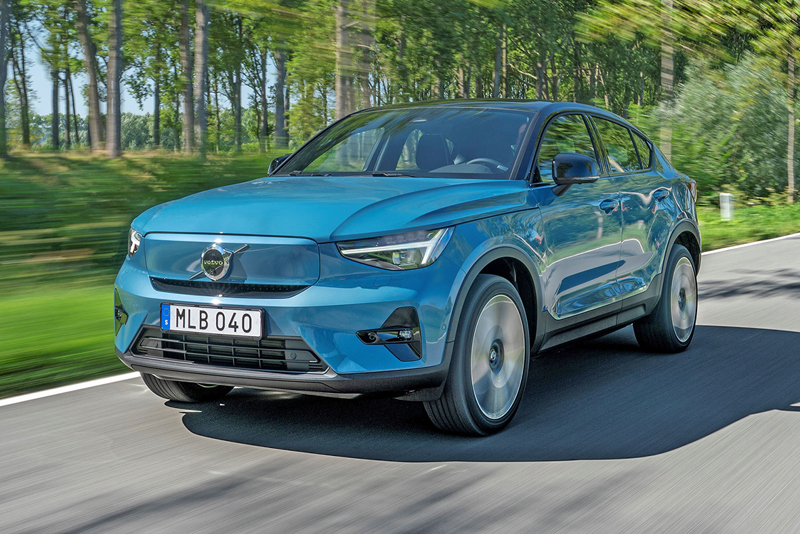
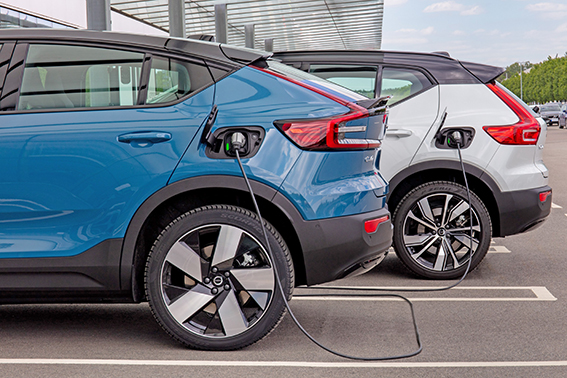
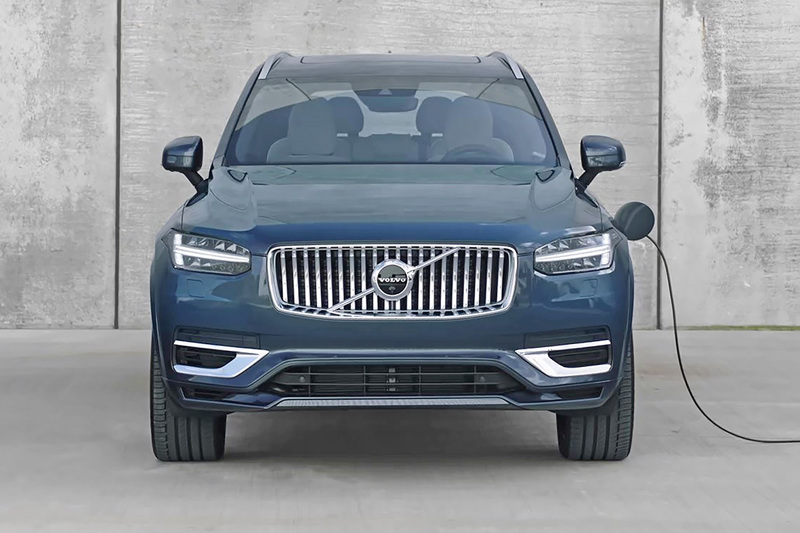
















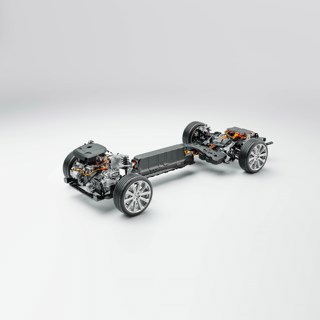
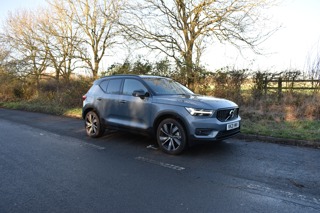
Login to comment
Comments
No comments have been made yet.